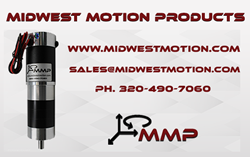Ekso Bionics Announces a New Generation of Robotic Exoskeleton
Ekso GT Provides New Advancements for Gait Training and Rehabilitation for Survivors of Stroke and Spinal Cord Injury
Richmond, Calif. December 18, 2013
Ekso Bionics™ today announced the first delivery of Ekso GT™, a robotic exoskeleton which enables individuals with lower extremity paralysis or weakness to stand and walk. Ekso GT introduces new advancements designed to make it easier for clinicians to provide therapy to a wide variety of patients, as well as provides new opportunities to explore therapeutic interventions, particularly for patients with some preservation of motor ability such as those who have experienced a stroke. The first device was delivered to US News' #1 ranked hospital in rehabilitation, the Rehabilitation Institute of Chicago (RIC).
Ekso GT is the next generation of Ekso™, a wearable bionic suit which enables individuals with lower extremity paralysis to walk over ground with a fully weight bearing, reciprocal gait. Battery-powered motors drive the legs and replace deficient neuromuscular function to either or both legs. Technological advancements in the newest model of Ekso further optimize the device as a functional-based, rehabilitative tool for hospitals and clinics serving patients with various forms of paralysis due to neurological conditions such as stroke, spinal cord injury or disease, traumatic brain injury and more.
"This is our fourth product in the evolution of Ekso technology in less than two years, demonstrating not only how quickly the technology is advancing, but how rapidly the clinical community is adopting it into their rehab programs," said Ekso Bionics chief executive officer, Nathan Harding. "We're witnessing an exciting new approach to neurorehabilitation."
The first Ekso GT was delivered to RIC and this is their second Ekso. It will be used to study post-stroke gait training and rehabilitation under a National Institute on Disability and Rehabilitation Research (NIDRR) funded grant. RIC and Ekso Bionics will collaborate and share data under a newly signed research agreement.
"The results we've seen using the previous Ekso among our stroke and spinal cord injured patients have demonstrated we have every reason to embrace and explore this technology further," said RIC's vice president, research, W. Zev Rymer, MD, PhD. "This is an exciting opportunity to be at the forefront of this incredibly innovative technology helping to improve outcomes for our patients."
Mechanical advancements in Ekso GT include easier, faster adjustment capability between patients, releasable hip abduction and thigh rotation to provide patients with appropriate strength and motor function more freedom, adjustable foot ankle stiffness and angle enable a more stable gait, and the new composite foot design encourages improved weight shifts. In addition, the Ekso GT's software hosts several new advancements, such as a feature for turning in place, and the ability to adjust software settings while patients are walking.
Ekso can be found in leading rehabilitation clinics across North America, Europe, and Africa. To learn more about the new Ekso GT, please visit our website at http://www.eksobionics.com.
About Ekso Bionics
Ekso Bionics - headquartered in Richmond, California with offices in London, UK - is pioneering the field of robotic exoskeletons to augment human strength, endurance and mobility. We are committed to applying the latest technology and engineering to help people rethink current physical limitations and achieve the remarkable.
Facebook: facebook.com/eksobionics
Twitter: @eksobionics
YouTube: youtube.com/user/EksoBionics/
Featured Product

Midwest Motion Products is a leading provider of robust and reliable Motion Control Products.
MMP specializes in supplying high-quality Brushed & Brushless DC Motors & Gearmotors for Robotics and Automation Equipment with a wide range of motor windings and gear ratios. With an impressive track record of more than 8,000 released DC Gearmotors designs and over 2,000,000 individual part numbers, we are renowned for our ability to handle large-scale orders. Due to our huge on-hand inventory, we are also well known for lightning-fast delivery of our standard products. We take pride in our dedicated customer service and our team of knowledgeable sales and engineering experts who are ready to assist you with custom design solutions tailored to your specific application. Additionally, we also offer a wide range of complimentary products, such as DC Motor Controls, DC Linear Actuators, AC-DC power Supplies, and DC Servo Amplifiers and others.
